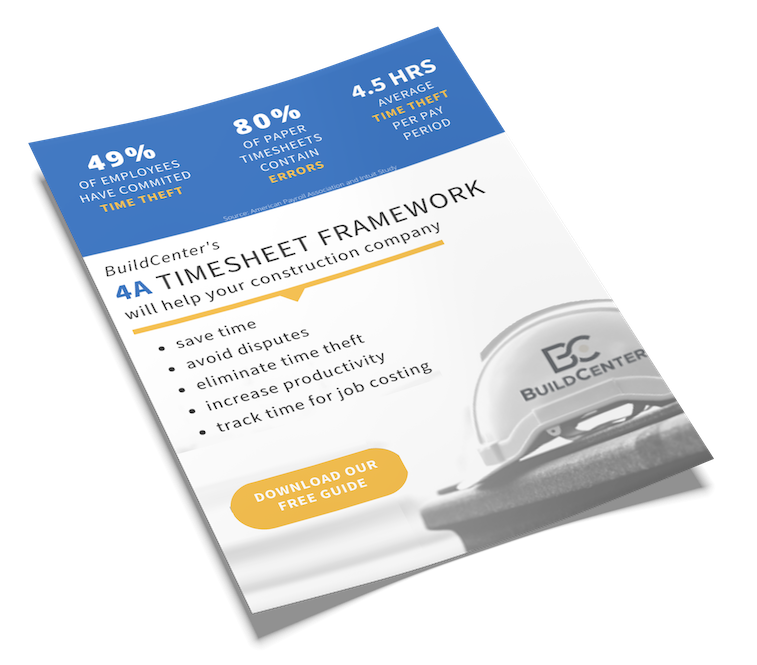In construction, workers can spend long days performing their trade. This can lead to overtime pay even if they work only a little bit over a standard 8 hr work day or 40 hr work week. It’s important to know about the concept of rounding and grace periods when it comes to tracking and paying for hours worked.
In this blog, we’ll explore some of the rules of timecard rounding and the legality of that practice. You may be surprised to learn what is allowed under the law.
What is Timecard Rounding?
Time card rounding is the practice of rounding up or down to standard increments of time. For example, if a worker has a timecard showing 8 hrs and 5 min, the time could be rounded to 8 hrs even. Likewise, if the worker puts 7 hrs and 55 min, the time can be rounded up to 8 hrs.
Is it legal? California and federal laws allow employers to adopt rounding policies as long as the policy doesn’t consistently result in a failure to pay employees for their time worked. It must be fair to both employers and the employees. The rounding policy must be: 1) Fair and neutral on its face and 2) apply in a way that, in general, does not favor underpayment.
If the policy is structured to consistently undercompensate employees it would not be fair or lawful. This policy should be established and communicated before it is put into practice and should be consistently applied.
Some rounding polices will round to the nearest tenth of an hour and some can round up to the nearest 15 minutes.
According to one 2018 survey, 55% of business owners claim to always round employee time up or down. In most cases this is done to simplify payroll or make invoicing clients easier. Surprisingly, 34% admitted to rounding hours down deliberately to reduce payroll costs or to prevent early clock ins.
What a Grace Period?
In some cases, employers will implement a “grace period” policy, which works in a similar way to rounding. In simple terms, a grace period allows workers to clock in early or clock out late if no work is performed during those times and instead pays the employee according to their scheduled shift.
Employees are free to do as they please during this grace period since they are not getting paid for it. The advantage is that the employee doesn’t have to clock in exactly when they start work but rather during a short window of time prior to starting work. The same applies to the end of the workday……they can clock out not having to worry about being exact to the minute or second.
Keep in mind that for this to be legal, the following requirements must be met: 1) no work is performed during the grace period. 2) the employee is not allowed to work during the grace period and 3) the employee is free to do as they please during the grace period.
Why rounding and grace periods are important?
Many construction firms are moving to digital time tracking with phone apps like BuildCenter. These apps allow workers to clock in and out on their phones or other devices and hours are tracked per project and even cost coded. There are many reasons to start using apps like BuildCenter, however one common concern for both employees and employers is getting the hours worked correct. Nobody wants to be editing timesheets daily to correct inaccuracies or inadvertent overtime. Luckily, this can be addressed with a simple rounding setting that allows the timesheet to be accurate and fair. Check out BuildCenter.com for more information.
Don’t risk it with unfair or illegal rounding practicesIf you round time to favor the company, you risk getting pulled into a complaint with state or federal agencies. This can be avoided by following the rules and making the policy fair. You should also check your state’s own rounding laws to make sure you are in compliance.
Summary
There are many good reasons to consider time card rounding. The key is to have a clear policy that all employees are aware of and to make sure that policy follows the state and federal labor laws. Using a time tracking system like BuildCenter can streamline not only the collection of time sheets but also handle this rounding policy for you.
Resources
- Need an Employee Handbook? Download a free Construction Employee Handbook Template
- Try BuildCenter risk free for time tracking and crew scheduling




